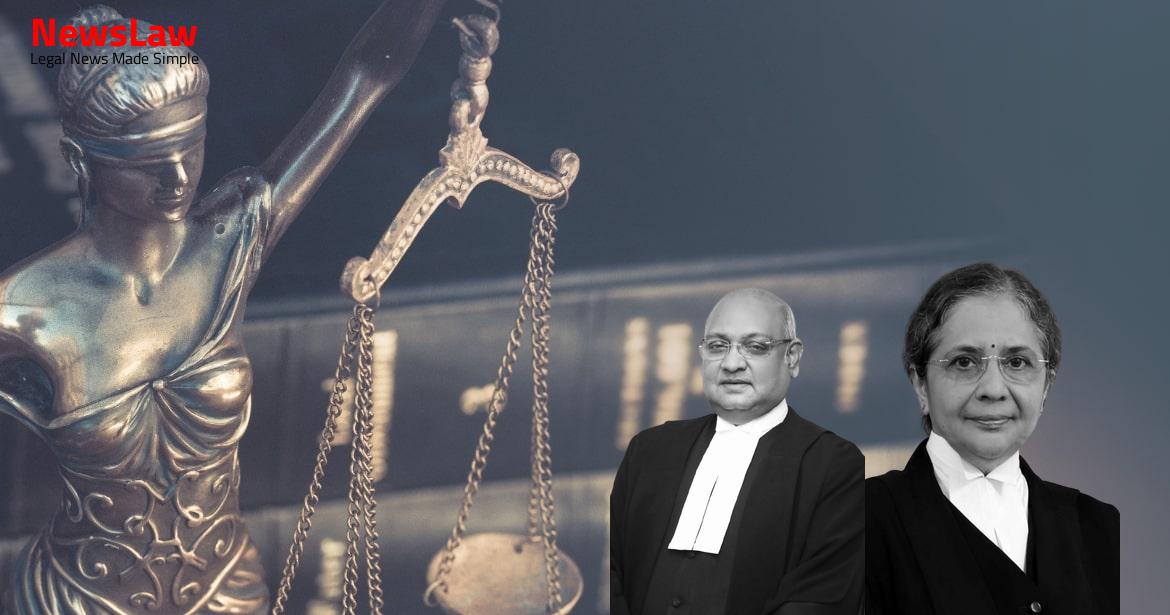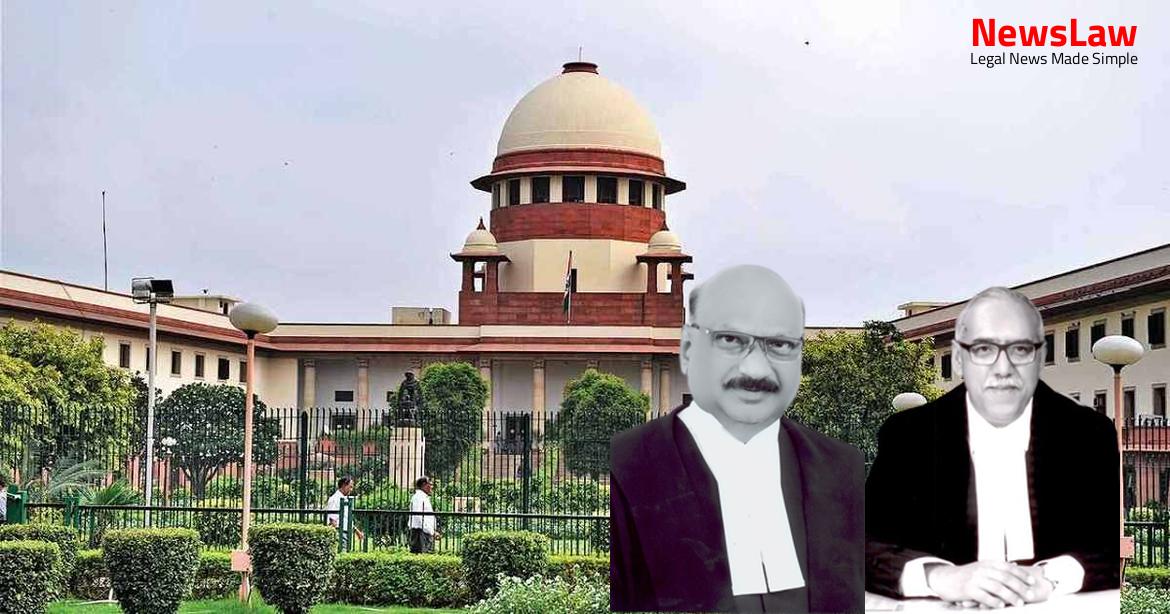In the case of Dinesh Dalmia vs CBI, the Court examined the importance of complying with Section 173(2) Cr.P.C. in submitting Police Reports. The petitioner, Dinesh Dalmia, challenged the submission of the chargesheet without all the necessary documents. The judgment provides clarity on the essential elements required in the Police Report and the implications of non-compliance. Let’s delve into the details of this legal case and understand the significance of following procedural requirements.
Facts
- The Court examined the part of the judgment related to the First Appellate Court (FAC).
- The Court granted leave to discuss and analyze this specific part of the judgment.
- The Court conducted a thorough examination of the arguments and findings in relation to the FAC.
- The examination focused on the specific issues and points raised in this part of the judgment.
- The appellant-accused challenged the High Court’s decision to dismiss his bail application in relation to a specific FIR.
- The FIR in question was registered for offenses under various sections of the IPC and the Arms Act.
- It was stated during the arguments that the trial is nearing completion, and most witnesses have already testified.
Also Read: Legal Analysis of National Food Security Act Implementation
Analysis
- The compliance of Section 173(2) Cr.P.C. is important in submitting the Police Report.
- Issues may arise when the Police Report is only submitted for some accused and not all, or when all required documents are not submitted.
- A chargesheet is the final report of the police officer after investigation.
- It is the duty of the Investigating Officer to strictly comply with the requirements of Section 173(2) of Cr.P.C.
- Non-compliance with these requirements can lead to legal issues.
- The form of the report is prescribed by the State Government, but mandatory requirements are laid down in Section 173(2).
- The report submitted under Section 173(2) is crucial for the competent court to take cognizance.
- The police report is important for prosecution, defense, and the court.
- Further investigation for other accused or production of additional documents does not invalidate the chargesheet.
- Incomplete chargesheet or lack of compliance with Section 173(2) does not automatically grant the right to default bail.
- The Police Report in a criminal case plays a crucial role in the investigation process.
- The report should clearly indicate whether an offence appears to have been committed and by whom.
- Upon receiving the Police Report, the Magistrate has three options: accept the report and take cognizance, direct further investigation, or disagree and discharge the accused.
- If the report concludes no offence has been committed, the Magistrate has the option to accept and drop the proceedings, disagree and take cognizance, or direct further investigation.
- Section 170 of Cr.P.C. deals with cases to be sent to the Magistrate when there is sufficient evidence.
- Section 172 pertains to the Diary of proceedings in the investigation.
- Section 173(2) outlines the requirements for the Report of police officer upon completion of the investigation.
- The Report should include specific details like names of parties, nature of information, names of witnesses, details of arrest and bond, medical examination report if applicable.
- If there is no sufficient evidence to forward the accused, Section 169 should be complied with, and communication to the informant is necessary.
- A Police Report is defined under Section 2(r) as a report forwarded to a Magistrate by a Police Officer as per Section 173.
- In the case of Dinesh Dalmia vs CBI, it has been held that the submission of the chargesheet itself would not be vitiated in law even if all the documents are not filed.
- As per the observation in Satya Narain Musadi & Ors. vs State of Bihar, the statutory requirement of the report under Section 173(2) would be fulfilled if various details prescribed therein are included in the report.
- Issues may arise when the accused claims for default bail under Section 167(2) of Cr.P.C. contending that all the required documents have not been submitted as per Section 173(5), or if the investigation as to some persons is still open while submitting the Police Report under Section 173(2).
- The recent case of CBI vs. Kapil Wadhwan & Anr. clarified that once the court is satisfied about the commission of an offence from the material produced with the chargesheet and takes cognizance of the offence alleged against the accused, it is irrelevant whether further investigation under Section 173(8) is pending or not.
Also Read: High Court Vacates Interim Orders in FIR Investigation Case
Decision
- The officer in charge of police stations in every State must comply strictly with the directions provided in the judgement.
- Non-compliance will be strongly scrutinized by the courts where Police Reports are submitted.
- A copy of this order will be sent to all Chief Secretaries of States/UTs and Registrar Generals of High Courts for acknowledgment and adherence.
Also Read: Conviction upheld in High Court in a case of deadly assault
Case Title: DABLU KUJUR Vs. THE STATE OF JHARKHAND (2024 INSC 197)
Case Number: Crl.A. No.-001511-001511 / 2024



